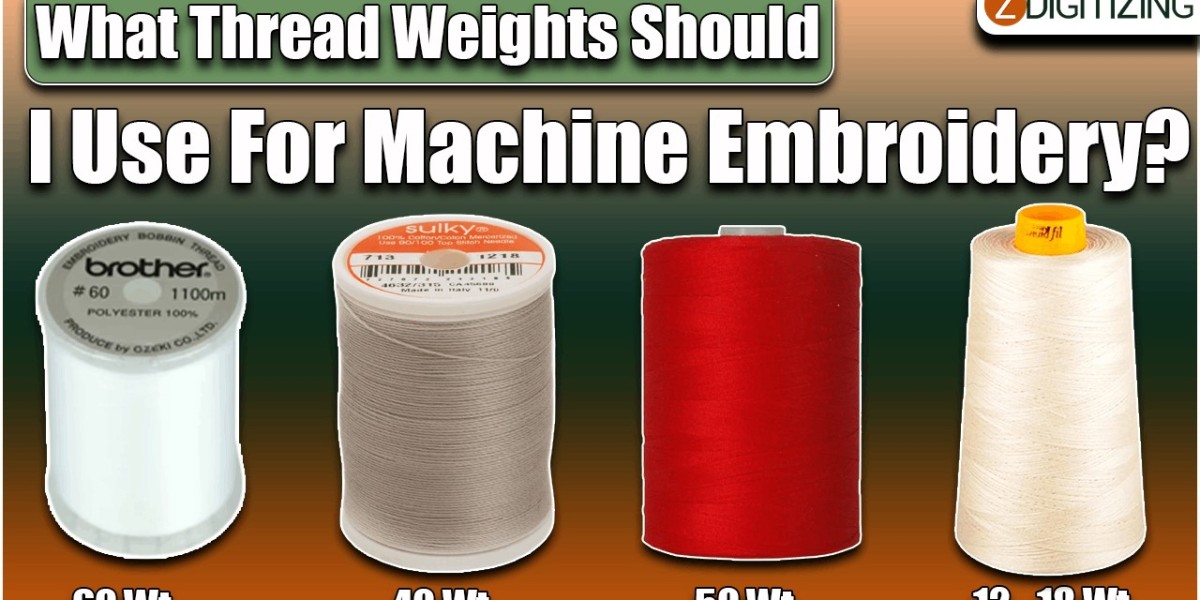When it comes to machine embroidery, choosing the right thread weight is crucial for achieving optimal results. The thread weight refers to the thickness or fineness of the thread, and different weights are suitable for different types of projects. Let's delve into the thread weights commonly used in machine embroidery and how to select the appropriate one for your project.
Understanding Thread Weights
Thread weights are typically indicated by a number, with lower numbers representing thicker threads and higher numbers representing finer threads. Common thread weights for machine embroidery range from 30 to 60 weight, although variations may exist depending on the manufacturer.
Factors to Consider
When selecting thread weights for machine embroidery, several factors should be taken into account:
Fabric Type: Consider the type of fabric you'll be embroidering on. Thicker fabrics such as denim or canvas may require heavier thread weights to ensure proper coverage, while delicate fabrics like silk or chiffon may benefit from finer thread weights to prevent puckering or distortion.
Design Complexity: The intricacy of your design also plays a role in determining the appropriate thread weight. Fine details and small lettering may require finer thread weights to maintain clarity and definition, while bold, larger designs may benefit from heavier thread weights for added impact.
Stitch Density: The density of stitches in your design affects how the thread will lay on the fabric. Higher stitch density designs may require finer thread weights to prevent excessive build-up and maintain flexibility, while lower stitch density designs can accommodate heavier thread weights for greater visibility and texture.
Recommended Thread Weights
Here's a general guideline for selecting thread weights based on common embroidery scenarios:
30-40 Weight: Ideal for bold designs with larger stitch areas, such as logos or monograms on heavyweight fabrics like denim or twill. These thread weights offer excellent coverage and durability.
50-60 Weight: Suitable for finer details and intricate designs, especially on lightweight or delicate fabrics like cotton or linen. These lighter thread weights produce less bulk and are less likely to cause distortion on delicate materials.
Consulting Embroidery Digitizing Services
If you're unsure about which thread weight to use for your specific project, consider consulting with embroidery digitizing services. These professionals are experienced in converting designs into embroidery files and can provide valuable insights and recommendations based on your design and fabric choices.
By collaborating with embroidery digitizing service, you can ensure that your chosen thread weight complements your design and fabric, resulting in professional-looking embroidery with crisp, clear details.
In conclusion, selecting the appropriate thread weight is essential for achieving high-quality machine embroidery. Consider factors such as fabric type, design complexity, and stitch density when choosing between thread weights, and don't hesitate to seek guidance from embroidery digitizing services for expert advice. With the right thread weight, you can create stunning embroidery projects that stand out for their precision and craftsmanship.







